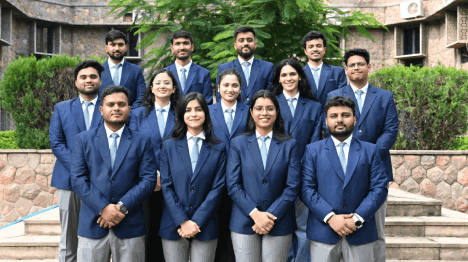How It Works
- Embedding Sustainability into Business Operations : Businesses must incorporate environmental, social, and economic considerations into their decision-making processes. By embedding sustainability into daily operations, companies can minimize negative impacts while driving positive change.
- Balancing Stakeholders' Desires vis a vis Climate Change: Sustainable management requires businesses to consider the interests of all stakeholders, including shareholders, employees, customers, local communities, and the environment. A well-balanced approach ensures long-term success and social responsibility.
- Establishing a Vision for the Future: A clear and shared vision for sustainability helps align stakeholders on the company’s long-term goals. Strategic planning ensures that sustainability remains a core focus rather than an afterthought.
- Commitment to Ethical Business Practices: Ethical decision-making is fundamental to sustainability. Companies must operate transparently and responsibly, ensuring that their actions do not harm society or the environment while maintaining long-term viability.
Key Benefits
- Creating Value: Sustainable business practices generate value for both the company and society, fostering long-term financial and social benefits.
- Reducing Costs and Environmental Impact: Implementing sustainability initiatives can lower energy consumption, reduce waste, and decrease carbon emissions, leading to significant cost savings.
- Enhancing Reputation and Brand Equity: Companies that prioritize sustainability improve their brand image, attract top talent, and strengthen their public relations efforts.
- Building Consumer Trust: As consumers become increasingly conscious of the ethical and environmental implications of their purchases, businesses that demonstrate sustainability earn trust and loyalty.
Core Principles of Sustainable Business Management
- Core Principles of Sustainable Business Management: A framework that evaluates business success based on three key aspects—people (social responsibility), planet (environmental stewardship), and profit (economic viability).
- The Four Pillars of Sustainability: : This holistic approach encompasses human (workforce well-being and equity), social (community engagement and ethical practices), economic (financial sustainability and growth), and environmental (resource conservation and impact reduction) dimensions.
By embracing sustainable business management, companies not only ensure their own longevity but also contribute positively to society and the environment, creating a future where profitability and responsibility go hand in hand.
Pedagogy
The programme is an appropriate blend of lectures, case studies, and problem-solving assignments. The teaching curricula are enriched by the inclusion of guest speakers from industry and academia, as well as field study components. The pedagogical progression ensures a comprehensive perception of Sustainable Business specifically customized for middle and senior management.



